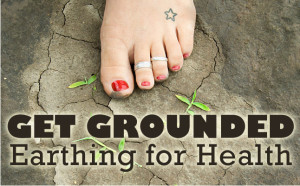On June 5th, 2013 I had the privilege of participating in a panel discussion in Summit, NJ sponsored by Fearless Parent. I am a practicing pediatrician, and my practice is pretty mainstream. But I have also written extensively about healthcare reform – specifically about the way healthcare industries and special interests now shape clinical clinical practice at least as much as medical science does.
I also write about how the way we pay for healthcare in a third party payer system distorts the doctor-patient relationship. It was through my book, The Color of Atmosphere: One Doctor’s Journey In and Out of Medicine that I came to know Jennifer Margulis, who was at that time conducting interviews and doing research for her book, The Business of Baby. Coming from different perspectives, I was surprised to learn that our work had so many themes in common.
As an advocate for healthcare reform I have done many speaking events, but the Nurture Parenting panel discussion was different.
I was delighted when Jennifer invited me to the June 5th event, and it turned out to be a very meaningful and educational experience for me.
I suppose we all have a tendency to operate within our own echo chambers, and doctors usually do their yodelling in the exam room, with patients who are comfortable with the way we do things.
The chasm between mainstream medicine and alternative approaches can seem vast from that position.
Sitting in that parish hall that evening brought me out of my comfort zone, across the chasm, and once again opened my eyes to how much we all have in common even in the face of disagreement.
What I heard was not only the tremendous pain and suffering that many of the parents in the room had experienced, but also, in story after story, how many of these parents had felt betrayed, dismissed or injured by the medical community.
I winced at accusations against doctors, bit my tongue at some of the data presented, and essentially tried to do something doctors are not always good at: to shut up and listen.
I was very appreciative of the respect I was shown when it came time to offer my perspective.
What I walked away with was a humbling sense of how doctors have to learn more mature, more humane and more respectful ways of interacting with patients who challenge or disagree with the way we do things.
Most of the doctors I know care deeply about their patients, and they would have been deeply moved by the conversations that night, but there was little evidence of that in the accounts I heard from the attendees.
I am deeply interested in the very nature of the patient-doctor relationship, and how it can be strengthened to better serve patients.
I would be grateful to hear from those of you willing to share your thoughts on this. In your encounters with providers, what is it specifically – about the language used, the tone of the dialogue, the personalities, the decisions – that made you feel either connected or marginalized? What are the barriers to honest communication with an MD? If a doctor has said something hurtful to you, what is it you wished they had said instead? What else should I be asking you?
If you are willing to send me your thoughts, please do, either privately, at mkozel14 [@] gmail.com, or publicly by adding a comment to this post.
And thank you to Fearless Parent for making room for me at the table!
Maggie Kozel, MD is a pediatrician at a community health center in RI and advocates for healthcare reform. She left clinical practice after twenty years to write about her experiences in health care. Maggie is the author of the award-winning The Color of Atmosphere: One Doctor’s Journey In and Out of Medicine (Chelsea GreenPublishing).
Photo credit: Woman’s Day













July 14, 2013 10:22 pm
Comments 0